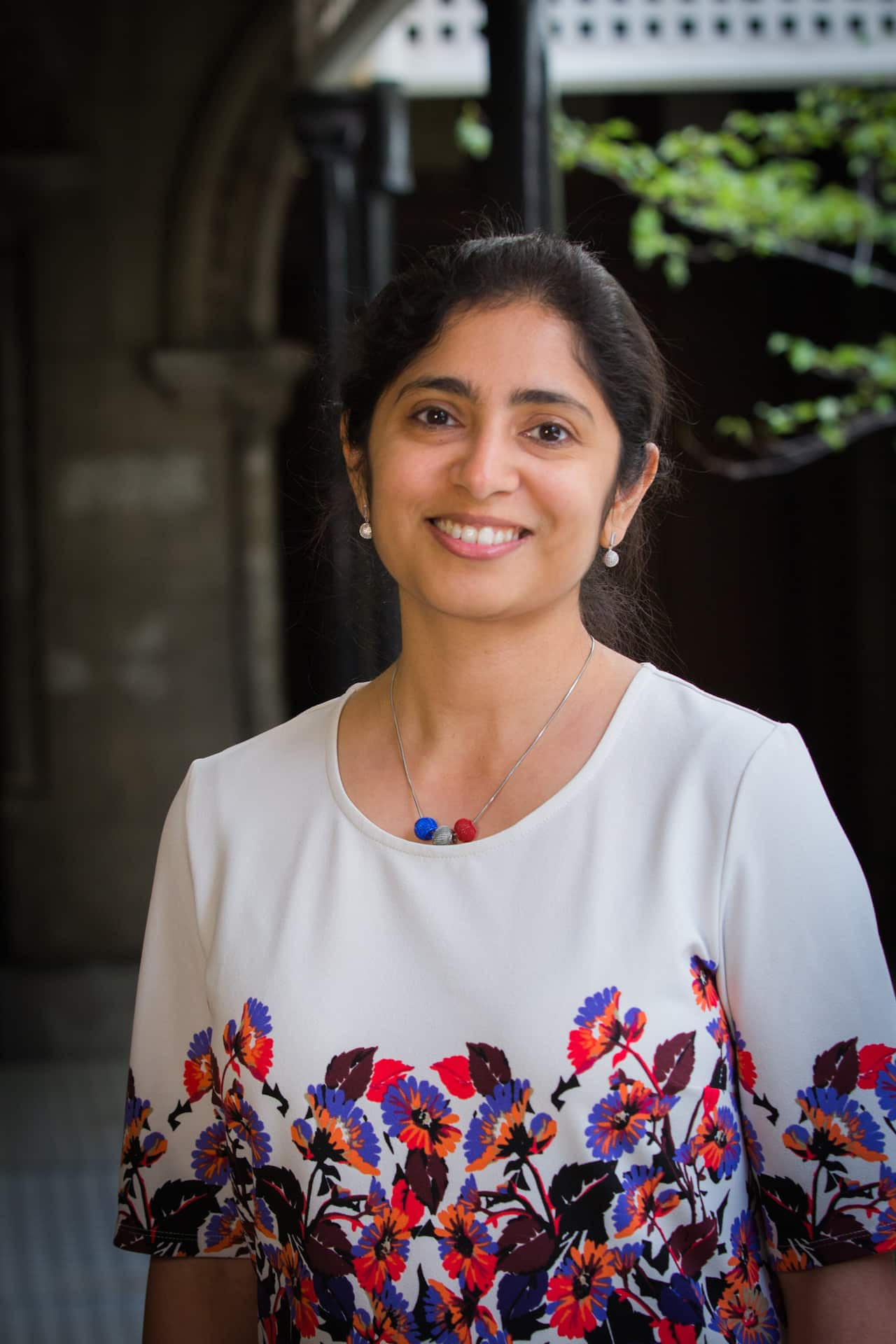“After completing undergraduate studies in Tamil Nadu, I arrived in Australia in 2004 to a Masters in Microelectronics Engineering at RMIT University," Professor Madhu Bhaskaran tells SBS Tamil.
"That time in a class of 80 people, 70 of them were boys, only 10 were girls and I was one among them. Later when I started working, I saw very few women engineers in my team."
She says she didn't see this gender inequality as a serious setback until she went on maternity leave in 2013.
"I was told that I was the first woman in 15 years to go on maternity leave from the engineering department. That's when it struck me that women are significantly less in numbers in the field of engineering."

Professor Bhaskaran says disparity needs to be addressed to see more women engineers in the coming years to contribute to Australia’s technology-driven economy. Source: Supplied
Societal views on engineering: India versus Australia
Professor Bhaskaran says data also shows that only 16 per cent of women study STEM education in Australia whereas in India 50 per cent of women prefer engineering.
She puts that down to a high societal awareness in India about engineering.
My grandmother who had never made it to college had the awareness that mathematics is very crucial and she insisted that I score better in mathematics than any other subject.
"Here there is a lack of awareness among girls to consider engineering as a prospective career option," she says.
"Even when a girl decides to study engineering and attends the university classes, she gets demotivated by the smaller number of girls in her class and tends to switch to a different career. Changing careers is very easy here which has both pros and cons but it proves to be a disadvantage in attracting girls to STEM.”
There are more than 330 programs in Australia to promote awareness among girls about STEM education and Professor Bhaskaran says career counsellors, who play a key role in influencing a girl’s career, need to talk about engineering career options at a very young age.
On the National Board of Directors for Women in STEM Australia, Professor Bhaskaran also co-founded the Women Researchers’ network at RMIT University which helped shape the university’s Gender Equality Action Plan.
"This network was initially started with just three women to empower the female staff at the University. The network has been instilling confidence in women to excel in their workplace by successfully overcoming barriers."
Born and brought up in Chennai, Tamil Nadu, in a family of doctors, Madhu says she was fascinated by engineering ever since her school days.
Though I got an admission in a medical college, I chose to become an engineer as engineering amazed me in my growing up years as I wondered how electrical equipment shrunk in size yet the functionality doubled.
She co-leads the Functional Materials and Microsystems Research Group at RMIT University and is currently developing a sensor technology along with her team to integrate a new health monitoring technology to improve aged care facilities across Australia.
Listen to Madhu Bhaskaran's interview with SBS Tamil
Sensor technology
“We are working on the sensory technology that could be attached to mattresses used for residents in aged care. This technology will help nurses and aged care managers to get a better insight about the wellbeing of their residents.
"Now nurses in aged care homes in Australia monitor residents every one hour in the night and this may disrupt the sleep of the resident. This technology that we are developing will support nurses to make accurate decisions thereby enhancing better quality life of the residents.”
Professor Bhaskaran believes that only a diverse team could come up with brilliant innovation and that’s why she says that she has consciously formed a multicultural team for her research works.
“The thought process of people from the same background are pretty similar. To solve a problem, you need people from different diversity, age groups, gender and cultural background who have enormous experiences working in different parts of the world. The outcome from such a diverse team, in my experience, has been amazing. “
Cultural differences in aged care
The way each and every country handles aged care is different, she says.
"Aging is a global problem so why can’t we borrow technology from other countries for aged care here? In India, there is a social stigma when it comes to aged care because older people need to be taken care of only by their children. In Singapore, it is common to use cameras for monitoring in aged care homes. Here in Australia, we cannot dream of cameras as people value their privacy as it is extremely important to them. They prefer something which is not invasive. We came to know about the cultural difference pertaining to aged care, only after our brainstorming team meetings.”
Mentoring students
For the past three and half years, Madhu has been working to enhance the wellbeing and environment for more than 650 PhD students at RMIT University in her role as Associate Dean for Higher Degrees by Research. She won the APEC Aspire prize in 2018 for her research in electronic skin. Despite winning many accolades over the years for her research work, Madhu considers 40 Under 40 The Most Influential Asian Australian Award which is an initiative to empower Asians in leadership roles in Australia very rewarding.
“This appreciation recognises my Indian heritage and also highlights my contribution to gender equity. My work towards gender equality is not part of my job but I still continue to do it as it is very gratifying. No other feat is more fulfilling than being a positive influence to the community.”
Share

